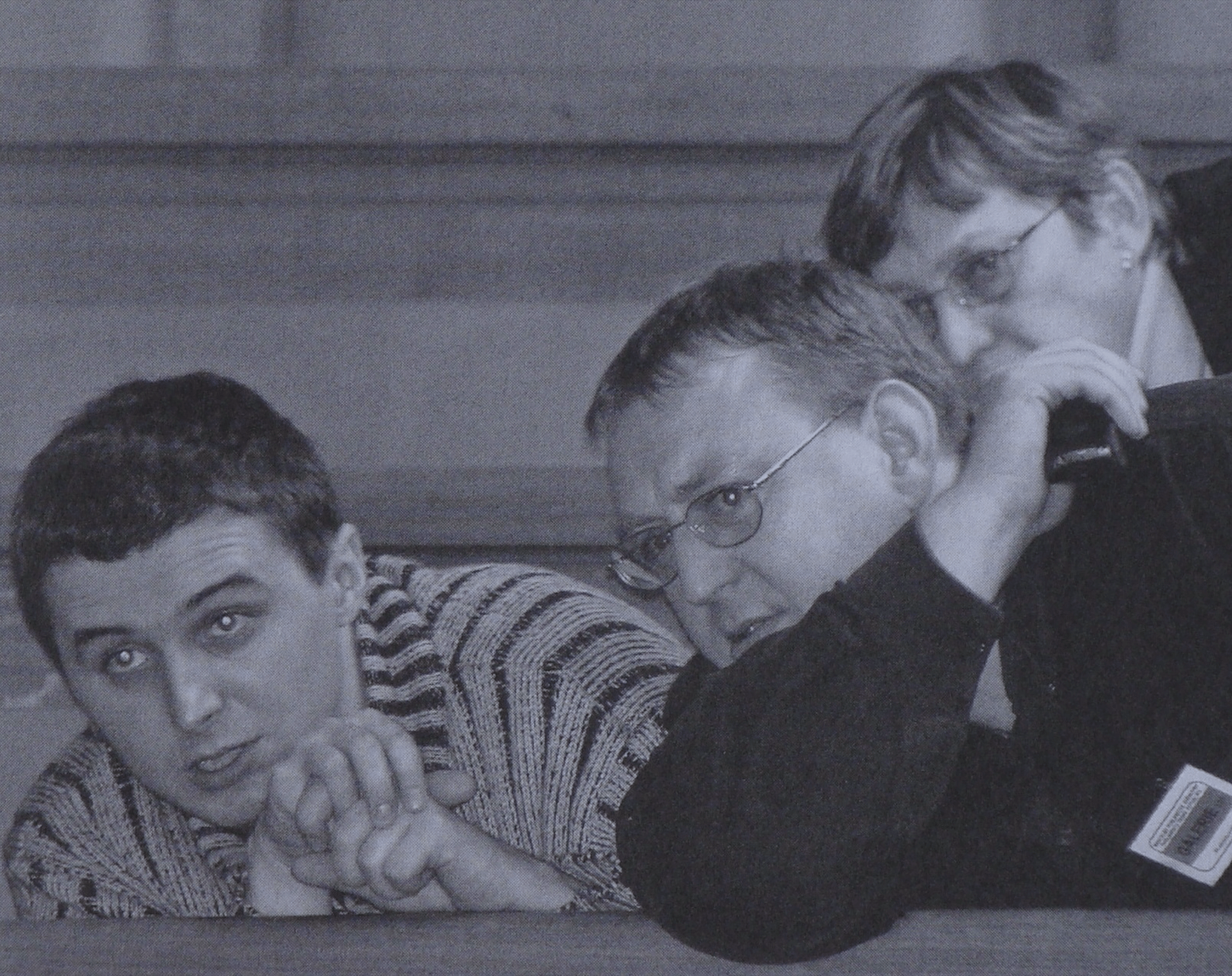2001. A demonstration in support of the law on registered partnerships is taking place in Prague, while Bratislava hosts “A march for tolerance.”
The Prague demonstration was organised by the Gay Initiative (created in 2001 through the transformation of SOHO) and the lesbian organisation Kruh A-klubu. The Bratislava March was organized by People Against Racism Association. The representatives of the Initiative Inakosť presented their demands for legal recognition of the institute of registered partnerships. Subsequently, in the same year, three separate “Marches of Otherness” i. e. marches against homophobia and discrimination against gay and lesbian people took place in Bratislava, Banská Bystrica and Košice.
The very first public event in Czechoslovakia which was attended by about twenty people was a demonstration of the Movement for Equality of Homosexual Citizens, organized by Šimon Formánek on February 25, 1990 in Prague's Old Town Square. The participants marched to the Old Town from Wenceslas Square. However, the public reaction to this act was negative. The next LGBT pride rights march didn’t take place until 1998.


2002. Hungary introduces a single age of consent for both homosexual and heterosexual intercourse: 14 years of age.
In June 2002, the European Parliament's Committee on Foreign Affairs recommended that it "reiterates its call on the Hungarian Government to repeal the criminal law provisions that discriminate against gays and lesbians ..." Shortly after this recommendation, the Hungarian Constitutional Court ruled in September 2002 that paragraphs 199 and 200 of the Hungarian Criminal Code are unconstitutional and will be removed. Following this judgment of the Constitutional Court, the same age limit of 14 years was introduced for all.
Following this judgment of the Constitutional Court, the same age limit of 14 years was introduced for all.
In 2002, Hungarian LGBT activists supported by national and international LGBT organizations and individuals built a new tombstone for Károly Kertbeny. During the annual LGBT festival, Lambda Gay organises a memorial service at this grave.
Legislation finally sees change (2001 - 2009) – Show all Show less
2006. The Czech Republic adopts a law on registered partnerships. The parliament overruled President Václav Klaus's veto with the smallest possible majority of 101 votes.
The registered partnerships, which at first seemed to be an obvious step for the nascent democracy, turned out to be a difficult struggle. The government first considered the possibility of incorporating this institute into the Civil Code in 1995, but it was rejected. Between 1997 and 2006, a total of five successive proposals followed parliamentary deliberations, mostly submitted by a group of MPs, and in one case (2001) by the Social Democratic government.
The first four proposals were not approved. The fifth one, proposed in 2006, was successful. In this case, the Parliament also had to override President Václav Klaus's veto. In this key vote which took place on 15 March 2006, the veto was voted by the smallest possible majority of 101 votes. The enactment of the institute of registered partnerships would not have been possible without the efforts of the former Social Democratic Prime Minister Jiří Paroubek, who set this "question" up as his main political priority.

2009. Hungary is adopting a new law on registered partnershipss for same-sex couples. The law does not allow the adoption of children.
The first draft of the law on registered partnerships in Hungary concerned all couples, regardless of their gender. However, this proposal was challenged by the Constitutional Court, claiming that this institute would duplicate the institute of marriage for heterosexual couples, the institute of marriage being protected by the Hungarian constitution as an exclusive union of a man and a woman. Since 2014, the same rule has been applied for Slovakia. Therefore, in April 2009, after several amendments, the law on registered partnerships for same-sex couples (excluding the adoption of children) entered into force.





